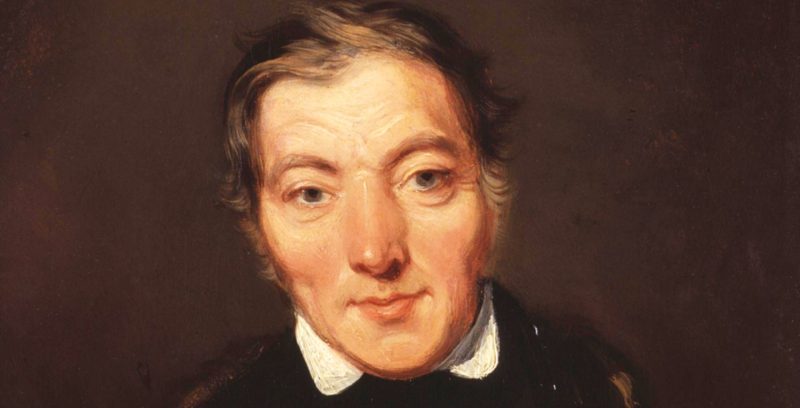We explain what utopian communism is and what its characteristics are. Also, the differences with scientific communism and its main representatives.

What is utopian communism?
Utopian communism was a current of socialist thought from the 19th century that proposed the creation of an ideal society based on equality and the absence of social classes. It was identified with communism because this current maintained that goods should be common property.
The denomination utopian communism arose when the scientific communism of Karl Marx and Friedrich Engels developed which proposed the creation of communism from an analysis protected by the laws of history. Other frequent names to refer to utopian communism are utopian socialism, pre-marxist socialism, protosocialism either first socialism.
The most important representatives of this school of thought were Robert Owen (England), Henri de Saint-Simon and Charles Fourier (France). There are also other authors who are usually linked to utopian communism due to the importance of equality in their works or their socialist activity, such as Flora Tristan and Étienne Cabet (France).
utopian communism came to an end during the 19th century when the great socialist movement emerged coordinated by the International Workers' Association (1864-1876), which was established on the basis of Marx's ideas. However, his legacy would have a marked influence not only on Marxism, but also on social democracy, cooperativism, the hippie movement, environmentalism and social Christianity.
Frequently asked questions
What is utopian communism?
Utopian communism is a theory that proposes an ideal society in which all material goods are shared and where there are no social classes or private property.
Who were the representatives of utopian communism?
Utopian communism was defended by Charles Fourier, Robert Owen, Henri de Saint-Simon and other thinkers of the 19th century. His ideas influenced the development of socialism, but utopian communism did not prevail in practice as a political system.
What are the currents of communism?
Throughout history, communist thought has developed different currents and variants: utopian communism, scientific communism, Marxism-Leninism, Maoism, Stalinism and Trotskyism, among others.
What is the difference between utopian communism and scientific communism?
Utopian communism is based on abstract and philosophical ideas about an ideal society without classes or private property, while scientific communism (developed by Karl Marx and Friedrich Engels) is based on a materialist analysis of history and proposes class struggle as engine of social change.
Is utopian communism the same as utopian socialism?
In practice, the concepts of utopian communism and utopian socialism They are used interchangeably to refer to ideals of social transformation. However, socialism and communism are two different schools of thought.
Differences with scientific communism
The difference between utopian and scientific communism lies in the different ways of approaching the construction of an egalitarian society.
The ideas of utopian communism are characterized by being more philosophical and abstract. than those of scientific communism. Its postulates are based on theoretical ideals of how egalitarian communities can be built. Utopians believed in the possibility of establishing these communities peacefully, often through social experiments and cooperatives.
Instead, The thinkers of scientific communism maintained that it was impossible to build communism without revolution and class struggle. They had a vision marked by historical materialism, which supported that class struggle was the engine of social change. For them, communism could only be achieved through the revolution of the proletariat.
Another difference lies in the fact that Marxism unified the different critical approaches to capitalism around its postulates, while utopian socialism consisted of a diversity of currents, often contradictory to each other, that sought a new path towards a more just society.
The thinkers of utopian communism
Among the main representatives of utopian communism were:
- Henri de Saint-Simon (1760-1825). He was a French theorist who defended the idea of creating a society based on collaboration and scientific progress. In that sense, he maintained that scientists and industrial producers would play an essential role in creating more egalitarian societies.
- Robert Owen (1771-1858). He was a British businessman who believed that it was possible to improve the living conditions of industrial workers. He maintained that to achieve this, education and cooperative work policies must be implemented. He financed and experimented with the founding of socialist communities.
- Charles Fourier (1772-1837). He was a French thinker known for developing the concept of phalanstery: a form of productive community where individuals worked together in harmony. He maintained that it was possible to create a social system where people, mobilized by their own desires and passions, formed a more just and equitable society.
The utopian colonies
The main currents of utopian communism They tried to put their ideas into practice through the creation of small communities. Its objective was to create community agricultural colonies that did not depend on the capitalist model and that explored other, more egalitarian forms of relationships.
These communities failed due to philosophical disagreements and economic problems, but also due to the emergence of personalistic leaderships within them. Some examples of these attempts were:
- The colony of New Harmony. Robert Owen founded an experimental community in 1825, in Indiana, United States. Within a few years, the experiment failed due to problems of leadership and economic subsistence.
- Fourier's phalansteries. From the concept of phalanstery Devised by Charles Fourier, in France there were several attempts to create autonomous communities where their inhabitants had an equitable distribution of work and private property did not exist. None of these communities lasted long term.
- The Amana Colonies. In 1855, a religious community of German Pietists settled in Iowa, United States. They created small communities organized with socialist principles that lasted for several decades. However, these were not utopian socialist thinkers, but rather religious communities who considered a more egalitarian way of life.
References
- Sheldon, G.W. (2001). Charles Fourier; Robert Owen; Henri de Saint-Simon. Encyclopedia of Political Thought. Facts on File.
- Stearns, P. N. (Ed.). (1993). Socialism; Marxist Historiography; Utopian Communities. Encyclopedia of Social History. Garland.
- Wilczynski, J. (1981). Utopian Socialism. An Encyclopedic Dictionary of Marxism, Socialism and Communism. Macmillan Reference Books.





